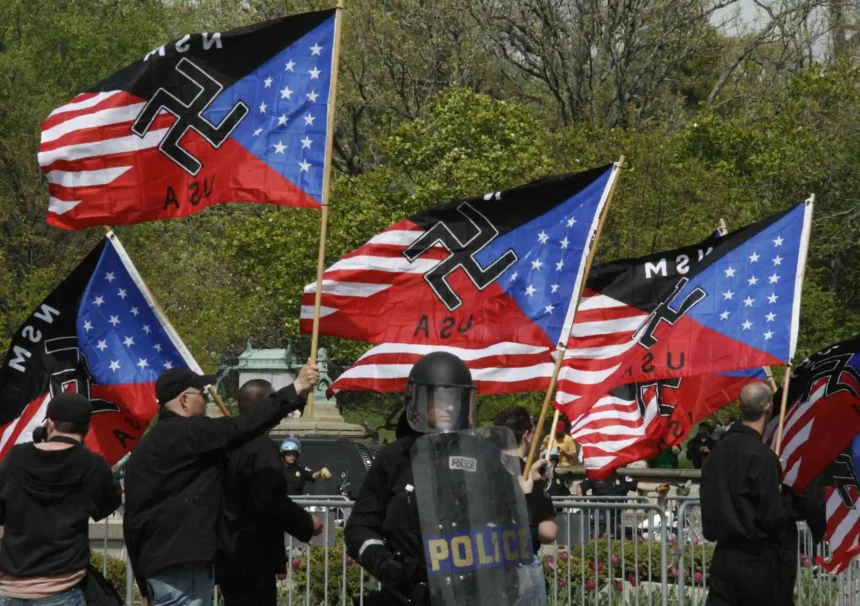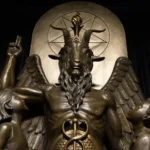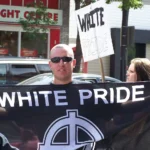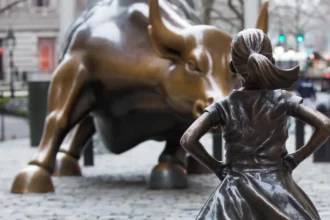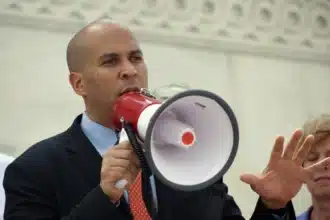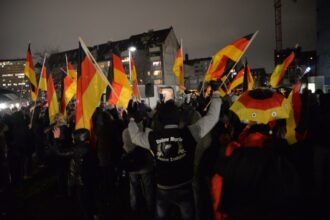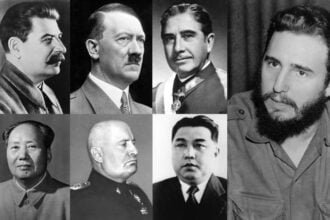In the heart of Orlando, Florida, an unexpected scene captured the public’s attention. A group, unified in their attire of red tops and black bottoms, made their presence known. Their march, marked by flags bearing white swastikas, was a clear declaration of their affiliations. These individuals represented factions such as the Goyim Defence League and Order of the Black Sun. Their anticipated grand gathering didn’t draw massive crowds, but their strategic choice to march near Disneyland ensured they weren’t overlooked.
Their alignment with Florida’s Governor, Ron DeSantis, added another layer of complexity to the situation. The friction between DeSantis and the entertainment giant, Disney, is well-known, especially concerning the ‘Don’t Say Gay’ legislation. This law, among others, has faced backlash for its potential impact on the LGBTQ+ community.
The Rise of Extremist Acts in Florida
The unsettling march in Florida wasn’t an isolated incident. A tragic event in Jacksonville, Florida, where a neo-Nazi extremist claimed three lives, echoed similar sentiments. Such acts, inspired by distorted beliefs like the Great Replacement theory, have unfortunately found traction among some far-right politicians worldwide.
The Proud Boys, a group with extremist leanings, have been in the limelight, especially post the Capitol breach of 2021. Their actions have led to legal repercussions, with their leader, Enrique Tarrio, facing the consequences recently. This period also marked the 60th anniversary of the historic Washington march against racial prejudice.
Challenges in the U.S. Political Landscape
Despite the political shifts post-2021, extremist ideologies haven’t faded. The Southern Poverty Law Center’s findings suggest that the U.S. is still navigating a challenging political terrain, with over 1,200 extremist groups active in 2022.
These groups have consistently targeted LGBTQ+ events, particularly those showcasing Drag Queens. Their protests, often backed by ultra-conservative factions, have wrongfully associated the LGBTQ+ community with negative stereotypes. In certain instances, these groups, empowered by lenient state regulations, have posed threats at family-centric events.
Antifascist Response and the Fight for Rights
Yet, these intimidations haven’t gone unanswered. Groups like the Elm Fork John Brown Gun Club have risen to the occasion, ready to safeguard their spaces and rights. Their proactive approach, mirroring the strategies of historical groups like the Black Panthers, sends a clear message to far-right extremists.
The rise in hate crimes, especially against the LGBTQ+ community, has been alarming. Recent incidents, like the Colorado Springs attack, highlight the gravity of the situation. The U.S., a global powerhouse, seems to be wrestling with its internal challenges.
The Future of U.S. Politics
The upcoming U.S. presidential elections paint an uncertain picture. With potential candidates like Trump or DeSantis, the leader of the anti-woke movement, the political trajectory remains unpredictable. While groups like the Proud Boys face challenges, their ideologies persist, hinting at a potential shift in the U.S. political landscape. The nation stands at a crossroads, with its core values and principles at stake.


